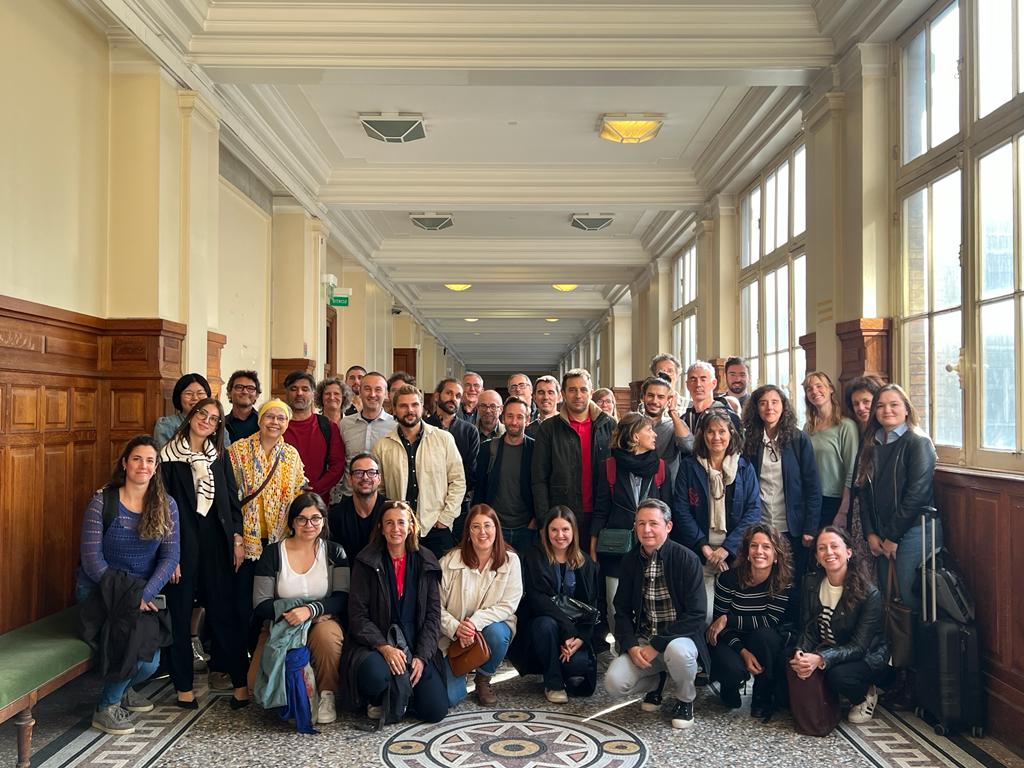Polifonia looks back on a successful Stakeholder Workshop and 5th project meet up in Paris
The hybrid stakeholder workshop of 20th September was a success: Polifonia met with nearly all of its 30 stakeholders and found new collaborations over the work packages and pilots. The remainder of the week was dedicated to Polifonia’s 5th plenary project meeting including an advisory board meeting and a hackathon to further explore the possibilities of the project.

The hybrid stakeholder workshop of 20th September was a success: Polifonia met with nearly all of its 30 stakeholders and found new collaborations over the work packages and pilots. The remainder of the week was dedicated to Polifonia’s 5th plenary project meeting including an advisory board meeting and a hackathon to further explore the possibilities of the project.
Research, Heritage and Industry stakeholders share their experiences
In the morning session Polifonia invited six stakeholders to prepare an in depth presentation, in order to get a better idea of the issues Research, Heritage and Industry organisations run into when working with music data. Romain Hennequin from web-streaming service Deezer was the first to share their findings and struggles with ambiguous and biased data. Then Eric van Balkum from Podiumkunst.net, a network organisation working towards a knowledge graph for performing arts, guided us through the process of RDA ontology building. Followed by Kévin Roger (University of Tours) and Joséphine Simonnot (Centre national de la recherche scientifique) who introduced us to the MUSICA2-consortium and the PRISM Laboratory. Anne-Emmanuelle Ceulemans, musicologist from University of Louvain stressed the necessity of an interdisciplinary approach in music data and explained her link with the TONALITIES pilot. The morning exercise ended with Rodolphe Bailey’s elaboration on challenges faced with ‘ScoreBot – A chatbot specialized in music scores’, the latest r&d project within the Resources Center Philharmonie de Paris.
Outcomes of the roundtable sessions
Christophe Guillotel-Nothmann, who moderated the Roundtable Session 1 Computational Musicology and Knowledge Graphs (TUNES, TONALITIES, FACETS, INTERLINK, ORGANS) summarised the first break out session: “We identified new links of collaborations and different levels in that. We have identified cross-pilot collaborations that can lead to new sessions and working groups. For instance on the ontology-clinics, or a connection between the moral aspects in the VAST project and texts that are put into music. During the Roundtable Session 2 Musical Cultural Heritage (BELLS, MUSICBO, Web Portal) that Marilena Daquino hosted, discussions revolved around practical issues such as preservation of materials and the provision of interfaces so that data can be reused in other software. In the Roundtable Session 3 Music History & Education (CHILD, MEETUPS, ACCESS) participants talked about applying the LED to new use cases, reuse of technology and output resources from individual researchers, new use-cases on applying tech for browsing in teaching context and, lastly, haptic bracelets for disabled people in the United Kingdom. “It was an inspiring session”, host Enrico Daga concludes. Later this year individual meetings will be scheduled to further deepen the stakeholders’ relation with the pilots and to strengthen the collaboration efforts.










